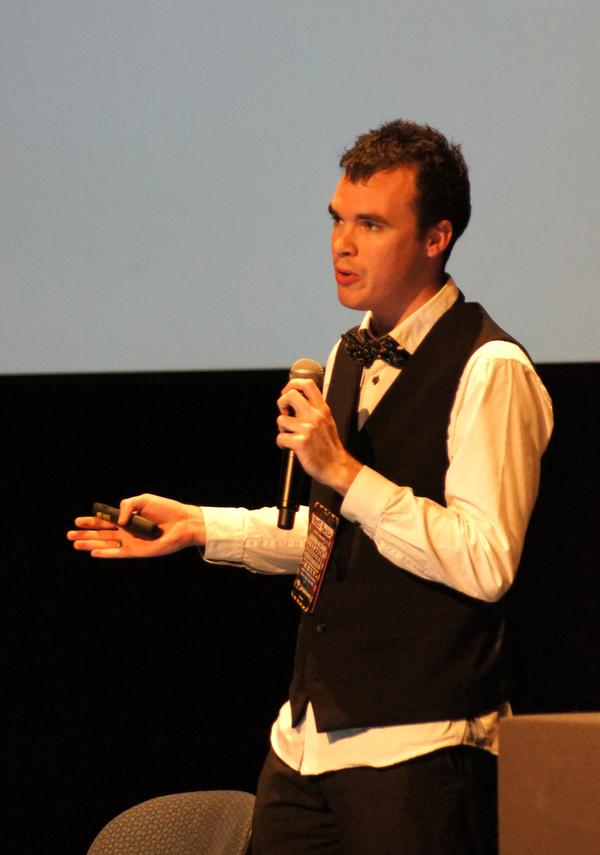Re-blogged with the kind permission of the author, Paul Smith, deputy editor, Australian Doctor
 Federal Health Minister Sussan Ley offered another slick performance at her Press Club address in Canberra last week.
Federal Health Minister Sussan Ley offered another slick performance at her Press Club address in Canberra last week.
People like her, she has good telly presence in a way that happily contrasts with the bad cop menace of her predecessor Peter Dutton.
When she addressed the industry big wigs in the audience – the drug companies, the management consultancies, the medical groups, the private health insurers – you could see them undergo the beautific visions of those who feel goodness had returned to Narnia.
Ms Ley is lucky.
The politics of her job have an easy-to-follow script – lots of excited talk about the urgent need for change before unleashing the reform taskforce which makes the government look like it’s all action, while helpfully delaying the unpleasant stuff until beyond the next election.
Ms Ley added another review to those already running – to look at the private health insurance industry.
She sold it as an attempt to understand why, despite the $6 billion in public subsidy each year, so many policies are “junk”, failing to cover the hospitals interventions needed when their members are at their sickest.
She also gave a passing reference to freeing up health insurers to play a bigger part in funding care outside the hospital gates.
There was even mention of encouraging more people to save their own money to fund future costs of primary health care. These are the ideas often floated by those who see the concept of ‘Medicare for All’ as having a use-by-date.
The audience smiled sweetly back.
But there was one (brief) moment which offered a glimpse of the tougher times likely to come to the minister, especially when she eventually collides full-on with an angry AMA over her MBS reforms.
It was when the News Limited journalist Sue Dunlevy, someone rarely seduced by the breezy charm of politicians, got up from the press table to ask her a question.
“Every year health insurers are paying $180 million in natural therapies for which there is no evidence,” she said.
“You already have the review of the worth of those therapies conducted by the chief medical officer on your desk…”
“Can you tell us what that report said and what you are doing about it?”
The minister’s sentences broke like toasted waffle.
“…the issue of complementary therapies is an issue of great interest to Australian patients and certainly to private health insurers and those concerns about the budgetary implications of which you speak.
“But I don’t propose to take any piece in isolation out of the complex mix of interests, stakeholders (for want of a better word) and, of course patients and taxpayers, when we look at the important issue of private health insurance.
“To pick up one report commissioned by a previous government (not that necessarily has to be an issue in itself) and make it something that this government has to respond to almost at the micro level, without regard to the intersecting policies issues and interests, I don’t believe is sensible public policy.”
In desperation I put this in the Google language translator and my lap top’s coolers ran red hot with the futility of the task.
Work on the chief medical officer’s report began in 2013. It is in the minister’s locked draw, where it’s been since February.
It has remained there for a reason.
There is no justification for squandering taxpayers’ money on homeopathy, iridology and all the diverse species of woo when you’re preaching the necessity of making Medicare sustainable.
There is no justification when insurers themselves talk so piously about refusing to pay for poor quality medical care their members get from private hospitals.
The one explanation which dare not speak its name for why this money disappears down this rabbit hole is that the companies have to flog these extras to lure in the young and healthy, whom they need to keep the business afloat.
Not healthcare at all, just part of the marketing budget.
Ms Dunlevy’s question is important, not because pulling the plug on health insurance voodoo is going to save the health budget, but because it has the subtext: how serious is the government about this “waste” question?
Before the coming debate on rebates for cataract surgery or the spend on coronary stents or the cost consequences of a PSA test, before the hunt for all the low value rubbish on the MBS, the government is offered an uncontestable example of squandered health dollars.
And the response is to do nothing?





